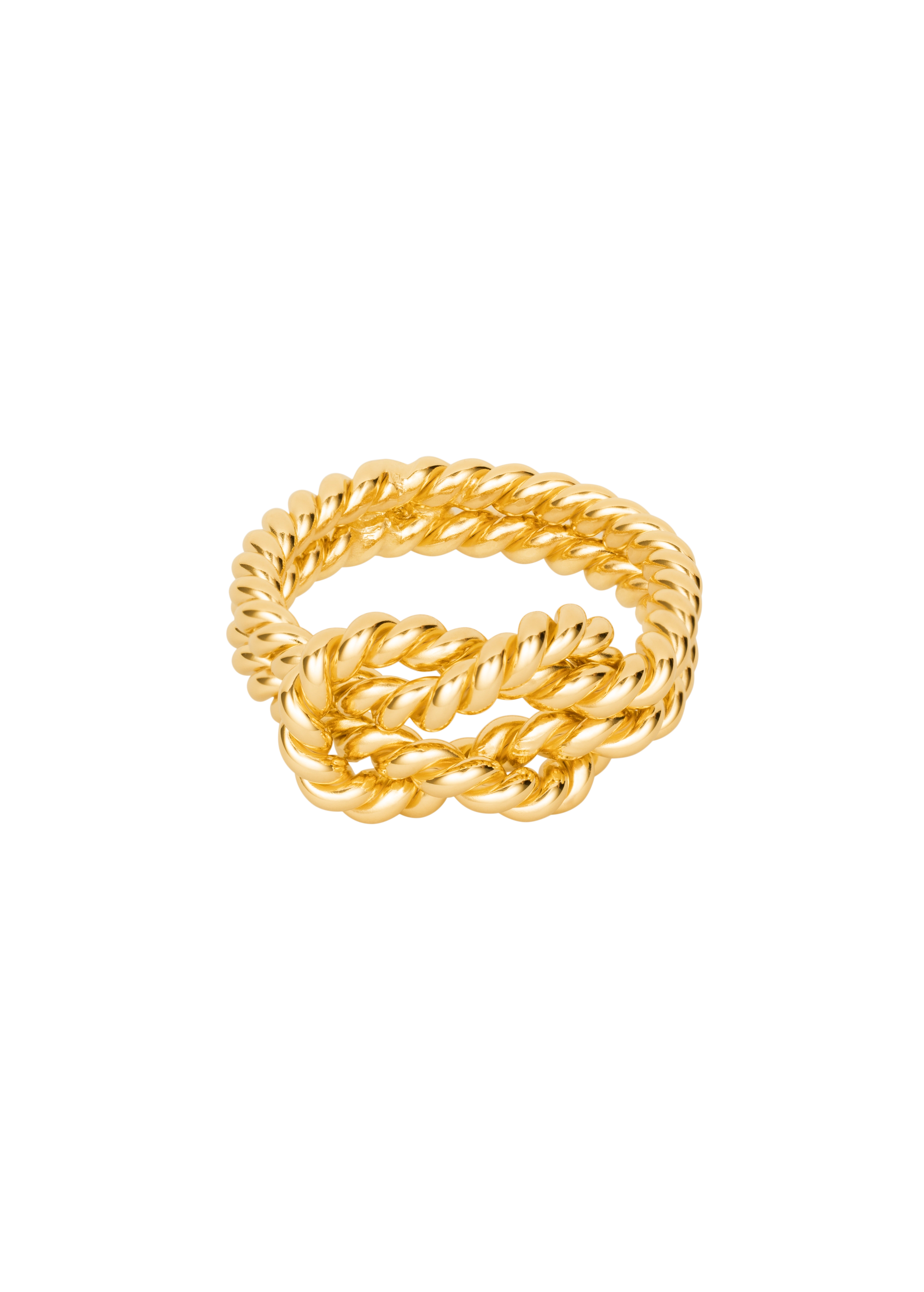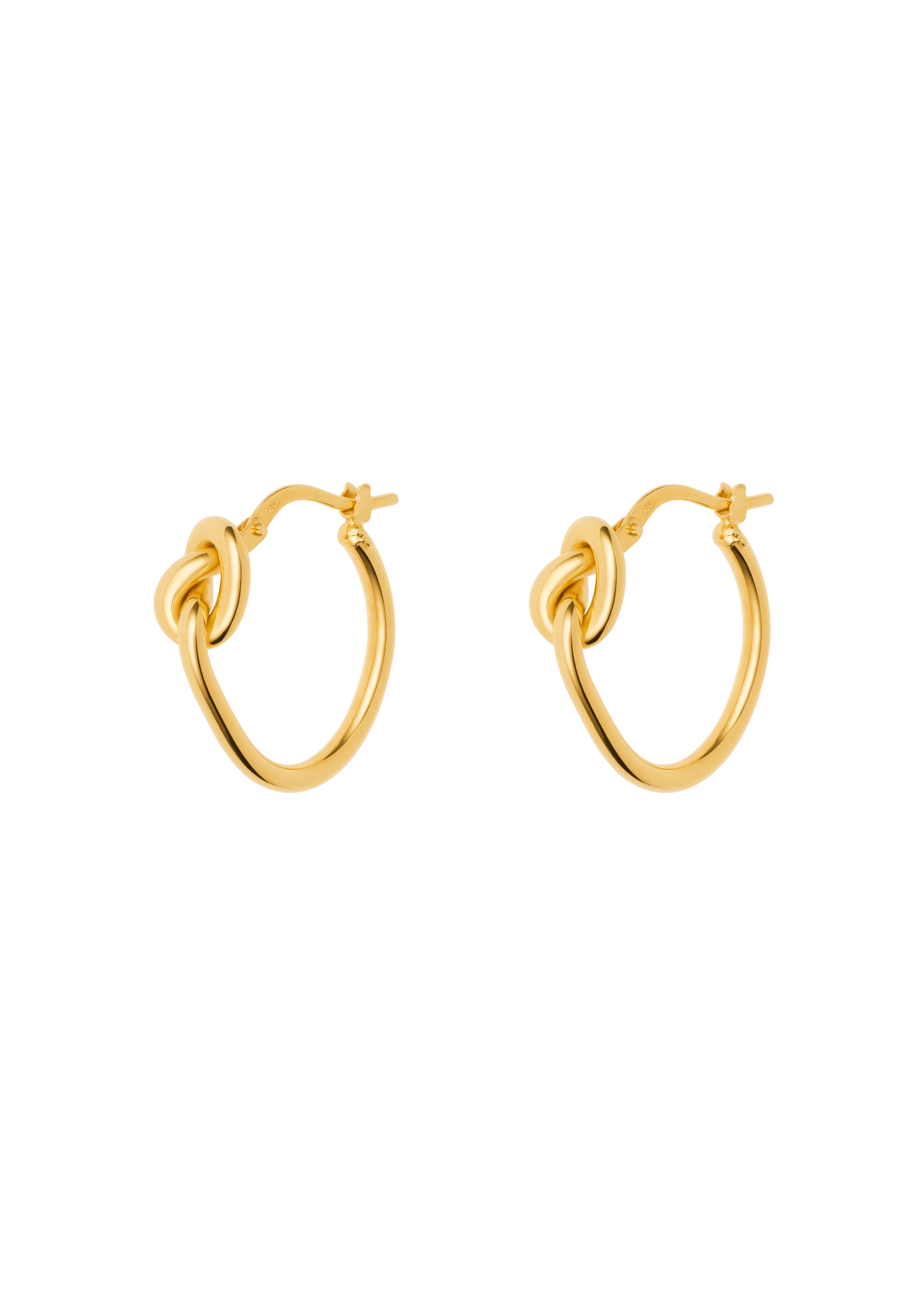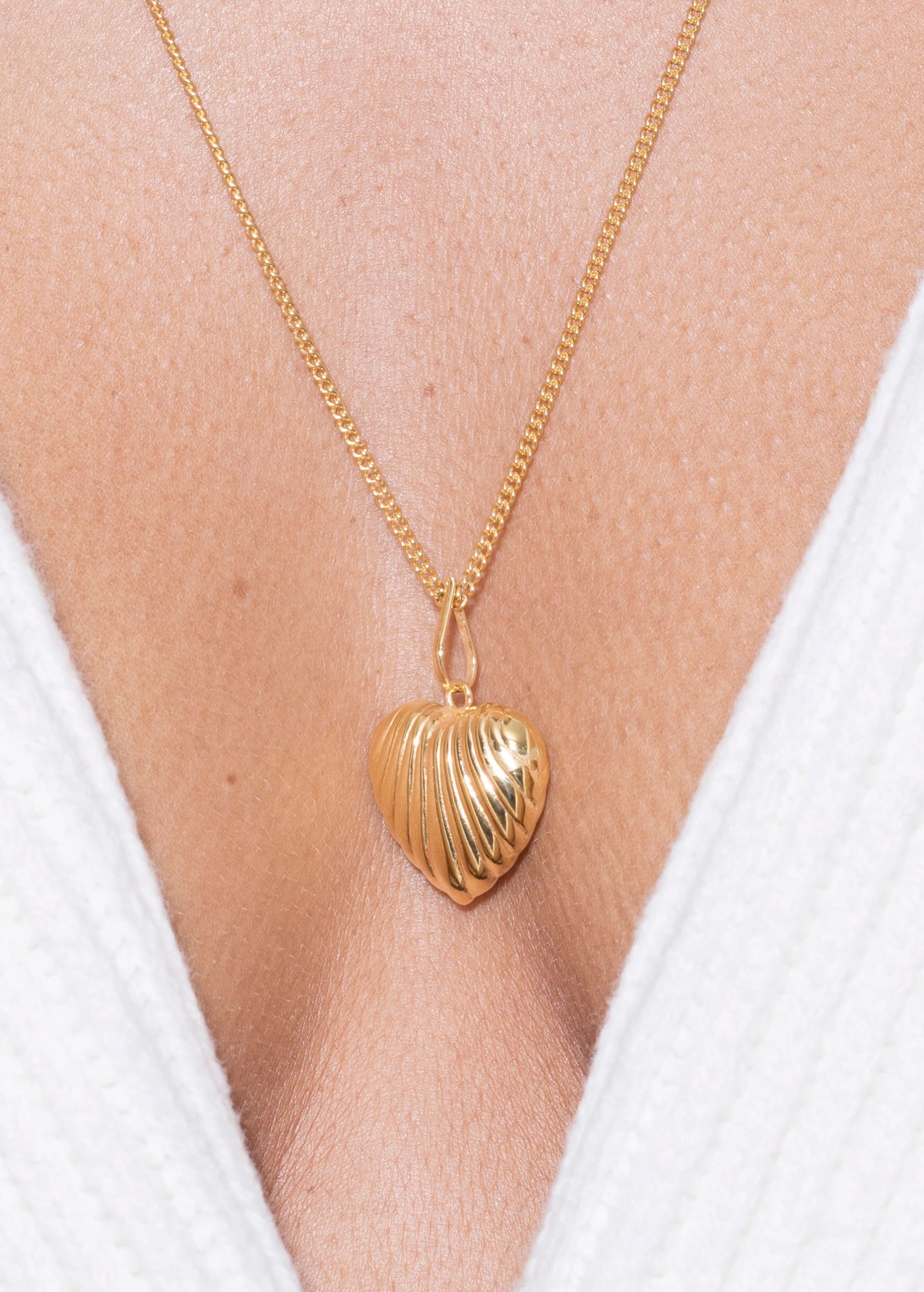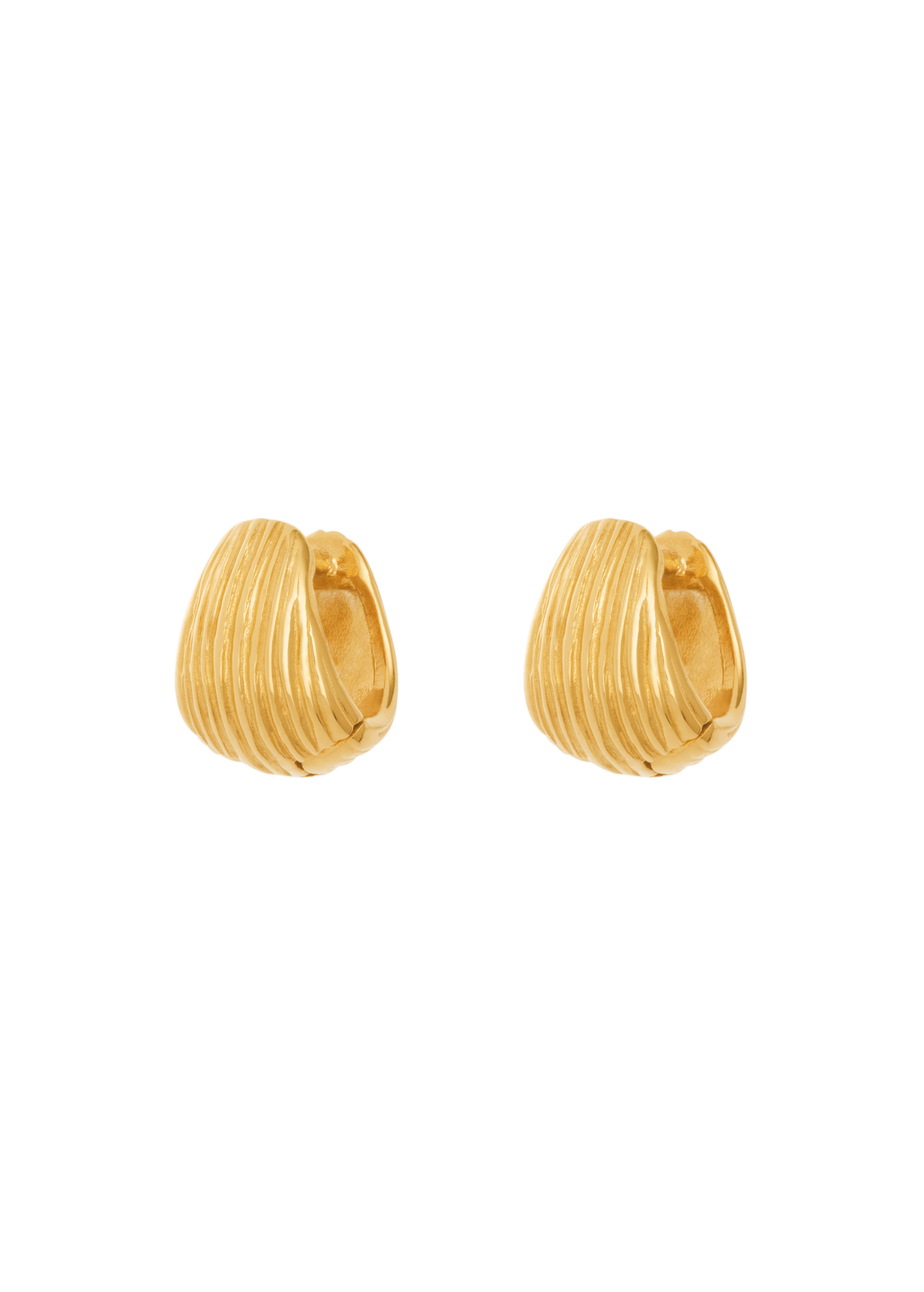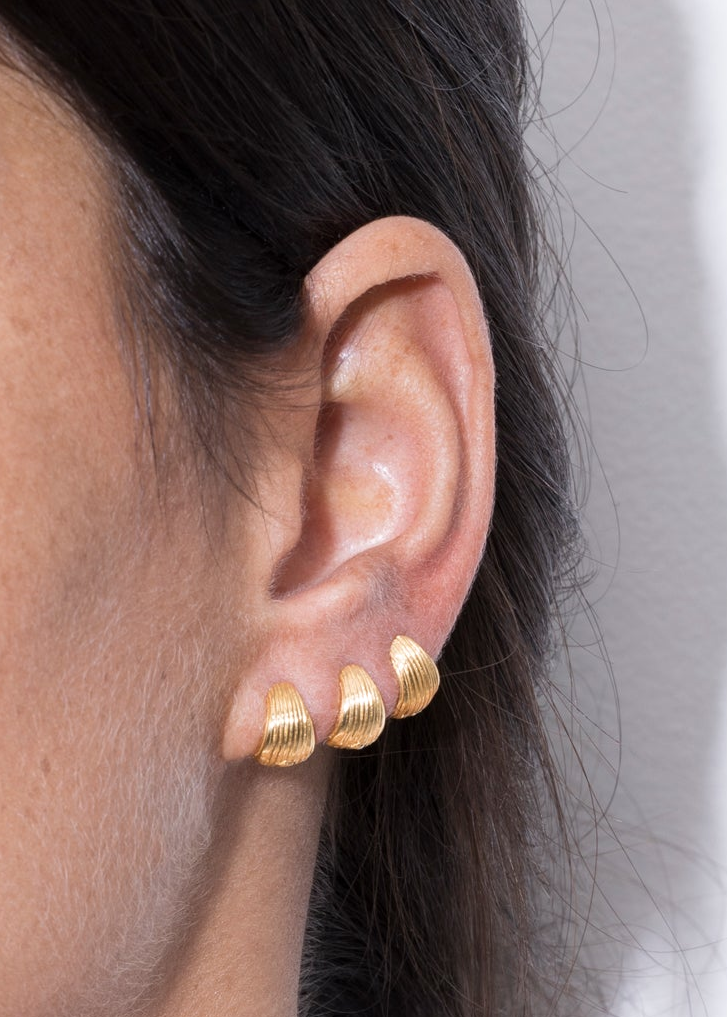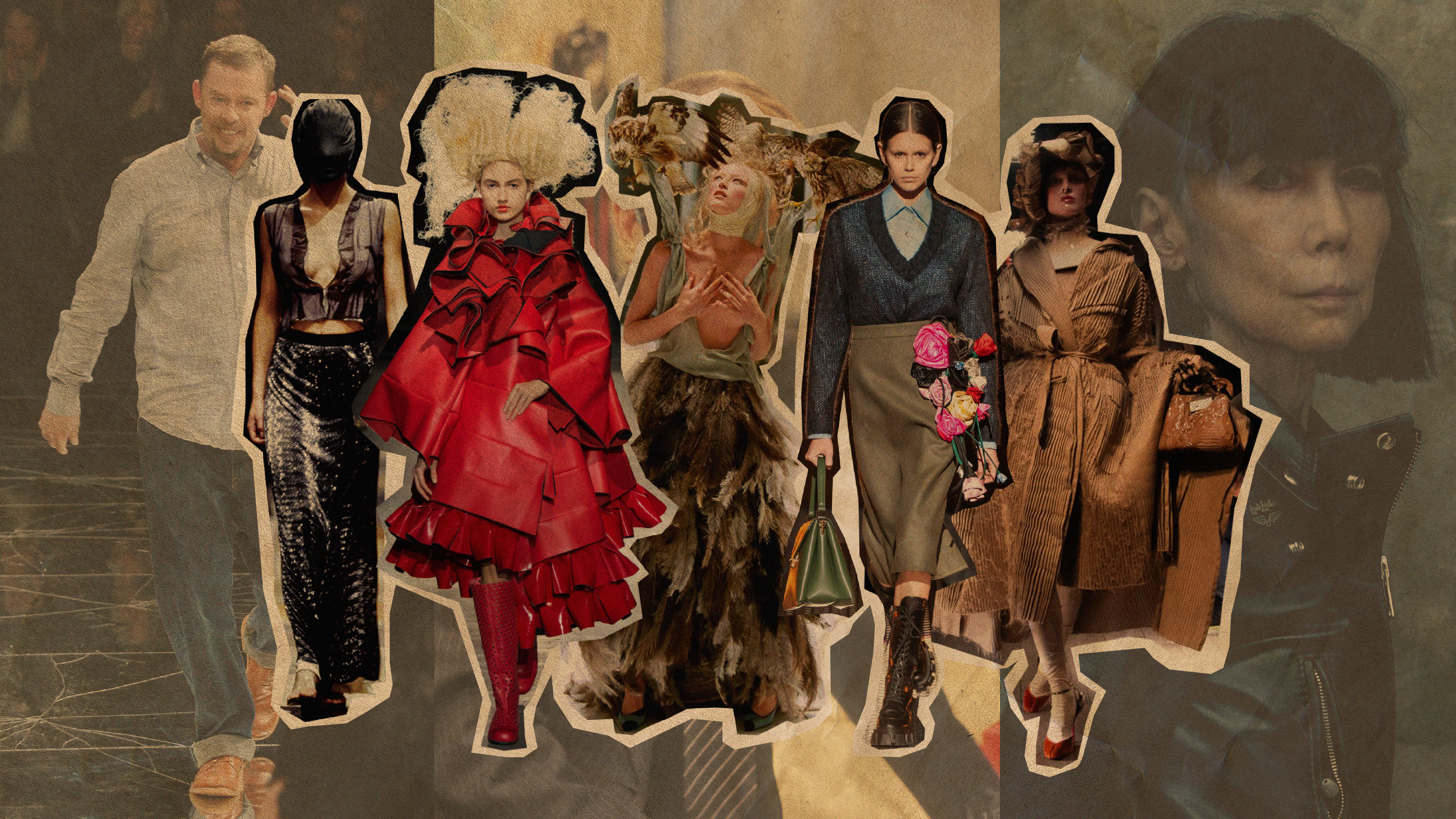SAINT LAURENT
saint laurent began his career in fashion at an early age, working as an assistant to christian dior. after dior's sudden death in 1957, saint laurent was appointed head designer of the house of dior at the age of 21, where he gained recognition for his trapeze line collection.
in 1961, yves saint laurent founded his own fashion label, yves saint laurent (YSL), with his partner pierre bergé. the YSL brand quickly became synonymous with modern, innovative designs that challenged traditional notions of femininity and style, celebrated individuality, and empowered people to embrace their own unique beauty. Throughout his career, introduced numerous groundbreaking designs and collections, including the iconic women's tuxedo suit le smoking, the mondrian collection inspired by the artwork of piet mondrian, and the safari jacket.
yves saint laurent's revolutionary approach to fashion went beyond mere clothing design. he was able to empower women through his visionary designs, leaving an enduring legacy that continues to influence the fashion industry today.




REI KAWAKUBO
born in 1942, in tokyo, japan, rei kawakubo as become one of the most renowned and celebrated fashion designers. since founding the label comme des garçons and making her debut in paris in 1982, she has forged her own path with an innovative and unconventional approach to fashion design. her designs often challenge conventional notions of beauty and aesthetics, with a focus on asymmetry, deconstruction, and an exploration of the boundaries between clothing and art. pieces may be elaborately bulbous or bulging, tatty or frayed; they may or may not take into account the wearer's arms, face, or vanity. her looks are architectural, sculptural, and even confrontational, challenging wearers and observers alike to rethink their perceptions of fashion and beauty. her designs encourage women to express themselves freely and boldly, challenging societal expectations and celebrating the complexity of individual identity. ultimately, kawakubo's goal is to empower women to define beauty on their own terms, embracing the uniqueness and complexity of their own identities.




ALEXANDER MCQUEEN
born in london's east end on march 17, 1969, lee alexander mcqueen was the sixth child of a taxi driver and a social studies teacher. it is said that at the age of three he drew a dress on the wall of his house, but whether this is true or just one of the many stories that make up his myth, the truth is that as a teenager he was already designing skirts and dresses for his older sisters, which caused a stir among the urban youth who at that time were surrendering to the charms of punk aesthetics.
he begins is career as a tailor's apprentice on london's savile row before enrolling at central saint martins college of art and design. his 1992 graduation collection, titled "jack the ripper stalks his victims," garnered considerable attention for its dark and controversial themes and set the tone for his future work.
his ability to create a dramatic universe that blended a love of 19th-century gothic literature, flamboyant 15th-century painting, and scottish history and landscapes made his catwalks highly anticipated events in the fashion world. among the most controversial catwalks was "highland rape," in which models walked down a runway covered in heather and moss, evoking the scottish highlands. the collection explored themes of violence, sexuality and scottish history, with garments resembling torn clothing and distressed fabrics. his presentations on the runway were not only a showcase for his collections, but also an immersive experience that challenged the viewer to rethink his or her perception of fashion and art.




MIUCCIA PRADA
born in milan, italy, on may 10, 1949, miuccia prada initially pursued a career in politics, earning a doctorate in political science from the university of milan. in her mid-twenties, however, she decided to start designing some items for her family's stores, the leather goods company founded in 1913 by her maternal grandfather, mario prada. in 1978, she inherited the business from her mother at the same time she met the man who would become her husband, a then rival in the world of leather goods named patrizio bertelli. the couple saw the project as an ambitious adventure; he would manage the business side, she the creative side.
under miuccia prada's leadership, prada has evolved into one of the world's leading fashion houses, renowned for its cutting-edge designs, luxurious craftsmanship, and sophisticated aesthetic. prada's collections, which encompass ready-to-wear clothing, accessories, footwear, and fragrances, reflect prada's distinctive blend of tradition and innovation, minimalism and extravagance.
she doesn't set out to create sexy or glamorous looks, but rather a kind of "ugly chic" that works. her collections typically incorporate garish colors, banal prints, and a vague retro aesthetic that can include using unconventional materials like nylon or rubber in ways that defy conventional taste and sophistication.
a notable example is the brand's FW 1996 collection, which featured chunky platform shoes with thick rubber soles and industrial-inspired details.
fashion allows us to express ourselves and to choose what we want to wear and how we want to be dressed. in a general view of the world, she believes that it is useless, but that it becomes useful in everyday life when it makes us happy to wear it.




MARTIN MARGIELA
martin margiela, a graduate of the royal academy of fine arts in antwerp, gained recognition in the fashion world for his innovative designs and unconventional runway presentations. he eschewed traditional glamour and luxury in favor of a more cerebral and subversive aesthetic, challenging established norms and conventions. one of maison margiela's signature techniques is deconstruction, which involves dismantling and reimagining garments in unexpected ways. he often used raw edges, exposed seams, and asymmetrical cuts to create garments that defied traditional notions of beauty and craftsmanship. tweaked the shoulders and played with the silhouette, using elements from the production of the clothes themselves, such as the waistcoat he made from his own mannequin.
other important element is the innovative use of materials and its commitment to sustainability. the brand frequently repurposes existing garments and materials, giving them new life and meaning. this approach not only reduces waste but also adds an element of storytelling to designs, as each piece carries its own history and narrative.
one of maison margiela's most iconic designs is the tabi boot, characterized by its split-toe design inspired by traditional japanese socks. the tabi boot has become a symbol of maison margiela's avant-garde aesthetic and has been reimagined in various materials and iterations over the years, including leather, canvas, and even high heels.
another hallmark of maison margiela's design philosophy is anonymity. the brand famously eschewed traditional branding and labels, opting instead for discreet white labels with four white stitches, which became a symbol of the brand's understated elegance and anti-establishment ethos.




cláudia cavaleiro the editor in chief for CINCO editorial. born in '82 in coimbra, she is graduated in philosophy from the university of coimbra. passionate about books and podcasts in a geek kind of way, she always find something interesting to research. loves to bring awareness to social problems and loves working at CINCO!
